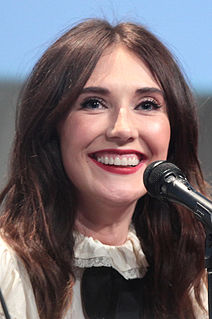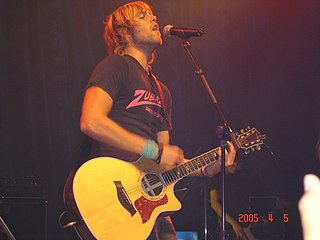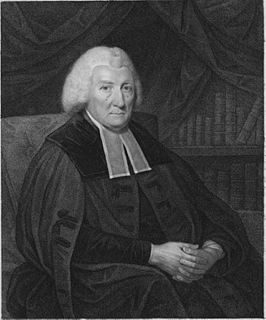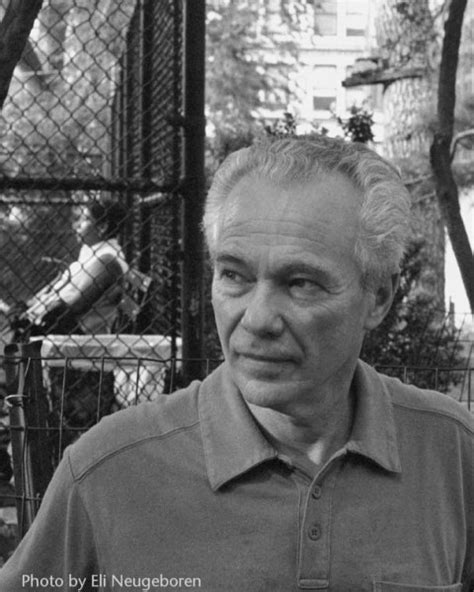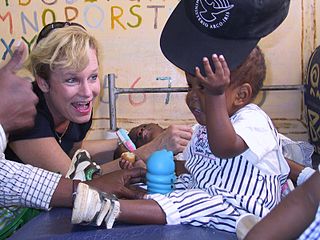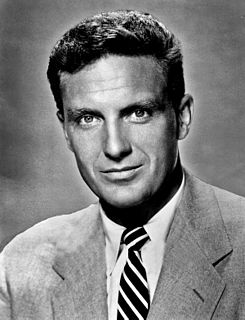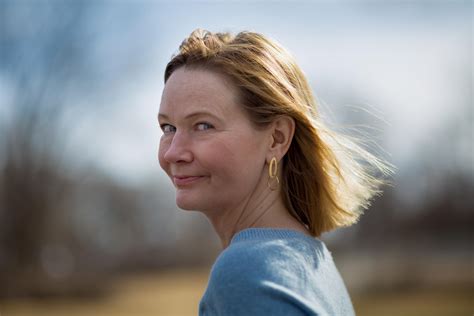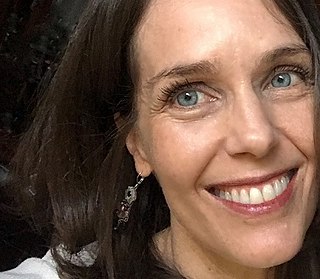Top 156 Orphan Quotes & Sayings - Page 3
Explore popular Orphan quotes.
Last updated on April 22, 2025.
My first American ancestor, gentlemen, was an Indian-an early Indian. Your ancestors skinned him alive, and I am an orphan. All those Salem witches were ancestors of mine. Your people made it tropical for them. . . . The first slave brought into New England out of Africa was an ancestor of mine-for I am a mixed breed, an infinitely shaded and exquisite Mongrel.
Even in chimps there is true altruistic behaviour; behaviour that doesn't fit into the sociobiological model that says you either help a close relative and thereby your own genes, or you help somebody else now in return for their help in the future. When a very high-ranking male chimpanzee rescues a little orphan, saving his life, that kind of explanation doesn't work.
You don't have to know anything about baseball to respond to Babe Ruth because he's just this magnificent human being. And a really good story because he was this kid who grew up essentially as an orphan, you know, had a tough life, and then he became the most successful baseball player ever. But he was also a really good guy.
I started reading Dickens when I was about 12, and I particularly liked all of the orphan books. I always liked books about young people who are left on their own with the world, and the four children's books I've written feature that very thing: children that are abandoned by their families or running away from their families or ignored by their families and having to grow up quicker than they should, like David Copperfield - having to be the hero of their own story.
And what an example of the power of dress young Oliver Twist was! Wrapped in the blanket which had hitherto formed his only covering, he might have been the child of a nobleman or a beggar;—it would have been hard for the haughtiest stranger to have fixed his station in society. But now he was enveloped in the old calico robes, that had grown yellow in the same service; he was badged and ticketed, and fell into his place at once—a parish child—the orphan of a workhouse—the humble, half-starved drudge—to be cuffed and buffeted through the world, despised by all, and pitied by none.
But I also slaughtered you real mother and father. In a moment of mad rage, I took their lives and left you an orphan. If you choose to take my life as a payment for theirs, you will be within your rights and no vampire will hold it against you. Pass judgment on me, Gavner Purl, and let your hand rise or fall as destiny decides it must." -Larten Crepsley
Debt, grinding debt, whose iron face the widow, the orphan, and the sons of genius fear and hate; debt, which consumes so much time, which so cripples and disheartens a great spirit with cares that seem so base, is a preceptor whose lessons cannot be foregone, and is needed most by those who suffer from it most.
When I was little I knew my father had been an orphan and had lived in an orphanage. I was curious, but my father wouldn't satisfy my curiosity. He told only one story about the orphanage, and that was of sneaking out and buying candy, which he sold to other orphans. He said he had a pretty good business going - till he was busted! I guess he told that anecdote because he was the hero of it and I suspect he was rarely the hero as a child, more often the victim. There's a photo of the actual orphanage on my website, and you can see it's a forbidding looking place.
My sister gave my two-and-a-half year old this book called 'And Tango Makes Three,' about the gay penguin couple at the Central Park Zoo. They cared for an orphan egg 'til it hatched and then raised the baby penguin as their own. I cannot get through this book without copious amounts of tears and snot running down my face.
When we ignore the prostituted child, we actually lend our hand to their abuse. When we ignore the widow and the orphan in their distress, we actually add to their pain. When we ignore the slave who remains captive, it's us who is entrapping them. When we forget the refugee, it's actually us who is displacing them. When we choose not to help the poor and the needy, we actually rob them. Perhaps the only fair thing to say is that when we forsake the lives of others, we actually forsake our own.
Compassion is an emotion of which we ought never to be ashamed. Graceful, particularly in youth, is the tear of sympathy, and the heart that melts at the tale of woe. We should not permit ease and indulgence to contract our affections, and wrap us up in a selfish enjoyment; but we should accustom ourselves to think of the distresses of human, life, of the solitary cottage; the dying parent, and the weeping orphan. Nor ought we ever to sport with pain and distress in any of our amusements, or treat even the meanest insect with wanton cruelty.
I’ve always wanted to be liked. It grieved me that I was treated with indifference. Left an orphan by Fortune, I wanted—like all orphans—to be the object of someone’s affection. This need has always been a hunger that went unsatisfied, and so thoroughly have I adapted to this inevitable hunger that I sometimes wonder if I really feel the need to eat. Whatever be the case, life pains me.
Give me ... a compassionate heart, quickly moved to grieve for the woes of others and to active pity for them, even as our Lord Jesus Christ beheld our poverty and hasted to help us. Give me grace ever to alleviate the crosses and difficulties of those around me, and never to add to them; teach me to be a consoler in sorrow, to take thought for the stranger, the widow, and the orphan; let my charity show itself not in words only but in deed and truth.
Upon the decease [of] my wife, it is my Will and desire th[at] all the Slaves which I hold in [my] own right, shall receive their free[dom] . . . . The Negroes thus bound, are (by their Masters or Mistresses) to be taught to read and write; and to be brought up to some useful occupation, agreeably to the Laws of the Commonwealth of Virginia, providing for the support of Orphan and other poor Children. And I do hereby expressly forbid the Sale, or transportation out of the said Commonwealth, of any Slave I may die possessed of, under any pretence whatsoever.
The love of wisdom is a way of life; that is to say, it's a set of practices that have to do with mustering the courage to think critically about ourselves, society, and the world; mustering the courage to empathize; the courage, I would say, to love; the courage to have compassion with others, especially the widow and the orphan, the fatherless and the motherless, poor and working peoples, gays and lesbians, and so forth - and the courage to hope.
For me, in general, it's always about the material. Obviously, it's about the material and hoping that someone wants to hire me for a job, too, but I've certainly seen films like 'Orphan' and movies like that where I know that if I had had the opportunity to read that script or had an opportunity to do it, I would have wanted to do it.
Like no other illness, AIDS tests our ability to put ourselves in someone else's shoes - to empathize with the plight of our fellow man. While most would agree that the AIDS orphan or the transfusion victim or the wronged wife contracted the disease through no fault of their own, it has too often been easy for some to point to the unfaithful husband or the promiscuous youth or the gay man and say This is your fault. You have sinned. I don't think that's a satisfactory response. My faith reminds me that we all are sinners.
Before I began The Cider House Rules, I thought I wanted to write about a father-son relationship that was closer, more conflicted, and ultimately more loving, than most. Then I began to think of a relationship between an old orphanage director and an unadoptable orphan - a kid who goes out into the world and fails and keeps coming back, so that the old guy ends up with someone he's got to keep.
A man should not go where he cannot carry his whole sphere or society with him,Mnot bodily, the whole circle of his friends, but atmospherically. He should preserve in a new company the same attitude of mind and reality of relation, which his daily associates draw him to, else he is shorn of his best beams, and will be an orphan in the merriest club.
Beginning with a critique of my own limbs, which she said, justly enough, were nothing to write home about, this girl went on to dissect my manners, morals, intellect, general physique, and method of eating asparagus with such acerbity that by the time she had finished the best you could say of Bertram was that, so far as was known, he had never actually committed murder or set fire to an orphan asylum.
Question the Chestnuts. Chestnuts: the new name for boobs? No. NO. Why would you even say that? Get your mind out of the gutter. No, by "chestnuts" I mean, "those old pieces of writing advice that you hear as common refrain." 'Write what you know.' 'Adverbs give Baby Jesus hemorrhoids.' 'If you write a prologue, an orphan loses his sight.' All the "old saws" need to be put on the chopping block.
Then she added in a sort of childish delight: 'We'll be poor, won't we? Like people in books. And I'll be an orphan and utterly free. Free and poor! What fun!' She stopped and raised her lips to him in a delighted kiss. 'It's impossible to be both together,' said John grimly. 'People have found that out. And I should choose to be free as preferable of the two.
When a child loses his parent, they are called an orphan. When a spouse loses her or his partner, they are called a widow or widower. When parents lose their child, their isn't a word to describe them. This month recognizes the loss so many parents experience across the United States and around the world. It is also meant to inform and provide resources for parents who have lost children due to miscarriage, ectopic pregnancy, molar pregnancy, stillbirths, birth defects, SIDS, and other causes.
The thing that got me about the Orphan Trains was that the experiences were so varied. Some of the kids went from neglect and hunger in New York to loving farm families who couldn't wait to fatten them up, who gave them medical care, an education, affection. And some of the kids became the victims of terrible cruelty, and more hunger, and more neglect - it all depended on who adopted them off of the train.
Two things put me in the spirit to give. One is that I have come to think of everyone with whom I come into contast as a patient in the emergency room. I see a lot of gaping wounds and dazed expressions. Or, as Marianne Moore put it, "The world's an orphan's home." And this feels more true than almost anything else I know. But so many of us can be soothed by writing: think of how many times you have opened a book, read one line, and said, "Yes!" And I want to give people that feeling, too, of connection, communication.
It would be more in keeping with the intention of the noblest man in this world if our two Christian churches, instead of annoying Negroes with missions which they neither desire nor understand, would kindly, but in all seriousness, teach our European humanity that where parents are not healthy it is a deed pleasing to God to take pity on a poor little healthy orphan child and give him father and mother, than themselves to give birth to a sick child who will only bring unhappiness and suffering on himself and the rest of the world.
Christina Baker Kline writes exquisitely about two unlikely friends—one, a 91-year-old survivor of the grinding poverty of rural Ireland, immigrant New York and the hardscrabble Midwest; and the other, a casualty of a string of foster homes—each struggling to transcend a past of isolation and hardship. Orphan Train will hold you in its grip as their fascinating tales unfold.
I am an orphan, alone: nevertheless I am found everywhere. I am one, but opposed to myself. I am youth and old man at one and the same time. I have known neither father nor mother, because I have had to be fetched out of the deep like a fish, or fell like a white stone from heaven. In woods and mountains I roam, but I am hidden in the innermost soul of man. I am mortal for everyone, yet I am not touched by the cycle of aeons.

